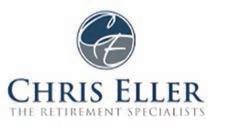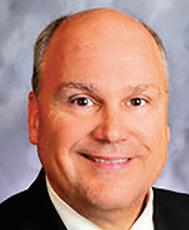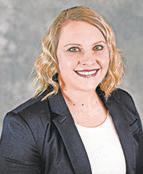








































































(BPT) - As millions of Americans evaluate their health plan options during this fall’s open enrollment season, a new survey finds that 3 in 5 Americans incorrectly defined key health care terms. This knowledge gap may result in less-than-ideal selections, which could cause you to miss out on plans that might better suit your needs and offer potential cost savings.
Here are a few tips to consider when choosing a plan that may help lead you to better health and cost savings:
1.Plan ahead. Take time to understand the benefits, services and costs of plans available - including what might have changed with your current coverage. Pay attention to more than just the monthly premium, also understanding what out-of-pocket costs like deductibles, copays and coinsurance you may be responsible for. Resources like JustPlainClear.com and Medi-
careMadeClear.com can provide valuable assistance.
Medicare members and caregivers: As you weigh your options, assess the differences between Original Medicare and Medicare Advantage. Visit MedicareEducation.com to find answers to questions about eligibility, plan choices, prescription coverage and more.
2.Help prevent unexpected costs . Check if your doctor is in your plan’s provider network, since visiting in-network providers can help reduce out-of-pocket costs. Make sure your medications will be covered next year by the plan you choose. And consider filling your prescriptions at an in-network pharmacy or with home delivery - more cost-efficient options.
Medicare members and caregivers: Original Medicare doesn’t generally cover prescription drugs. Consider

enrolling in a Medicare Advantage plan with prescription drug coverage to help keep medication costs in check.
3.Explore mental health coverage. Beyond in-person mental health care, you may have access to a virtual network of therapists and psychiatrists, along with advocates to help find the right behavioral health care or resources.
Medicare members and caregivers: Look for plans that offer virtual mental health care with a $0 copay.
4.Look into specialty benefits. Additional benefits, such as dental, vision, hearing or critical illness insurance, are often available and may contribute to overall well-being.
Medicare members and caregivers: Original Medicare doesn’t cover most dental, vision and hearing services, but

many Medicare Advantage plans do.
5.Consider wellness programs. Many health plans offer incentives for taking healthier actions, like completing a health survey or exercising. Others provide personalized support to those living with common chronic conditions like Type 2 diabetes.
Medicare members and caregivers: Many Medicare Advantage plans offer gym memberships and wellness programs for members at no additional cost.
Visit UHCOpenEnrollment. com to learn more.








Benjamin F. Edwards
1701 4th St #101
Peru, IL 61354
815-220-0588
benjaminfedwards.com
Chris Eller –
The Retirement Specialist
801 Je erson St.
Mendota, IL 61342
(815) 539-3437
www.chris-eller.com
Financial Plus
Credit Union
2813 Plaza Dr.
Peru, IL 61354
815-223-6602
www. nancialplus.org
1905 13th Ave.
Mendota, IL 61342
815-539-3444
www. nancialplus.org
First State Bank
Mendota (815) 538-2265
McNabb (815) 882-2146
Peru (815) 224-4484
Ottawa (815) 433-3727
Princeton (815) 872-0002
LaMoille (815) 638-2398
www. rststatebank. biz
First State Insurance
715 Washington St. Mendota, IL 61342 (815) 539-5651
114 W Railroad St. Earlville, IL 60518 (815) 246-8261
Hartauer Insurance
613 1st St.
La Salle, IL 61301 (815) 223-1795
www.Hartauer.com
Hometown
National Bank
Member FDIC
260 Bucklin St, La Salle, IL 61301 (815) 223-7300
myhtnb.bank
Le elman & Associates
Sublette Location
111 West Main St. Sublette, IL 61367 (815) 849-5219
LaMoille Location
102 Main St. LaMoille, IL 61330 (815) 638-2171
Amboy Location
16 S. Jones St. Amboy, IL 61310 (815) 857-2125

As a growing business you may be looking for ways to gain an advantage. That’s where Wayland Financial Group can help. For over 10 years, we’ve been helping businesses of all sizes reach the next level. From medical and life insurance to employee stock plans and comprehensive retirement solutions, we’ll help you put together a benefits package that is tailored to your needs. And we’ll give you a level of personal attention that you deserve. After all, we figure you can use every edge you can get.




Financial security is vitally important for adults and their families. Recognition of that reality is evident in the efforts individuals make to secure their financial futures, which include investing in education, retirement planning and saving. Insurance is another way individuals protect their financial security and the safety of their families. Insurance products run the gamut from auto insurance policies to annuities. It can benefit anyone to refresh their memories about the significance of various insurance products that can help them protect their financial freedom and manage unforeseen life events that much more easily.
The Office of the Insurance Commissioner of Washington State notes that annuities are a type of contract between a consumer and an insurance company. When individuals purchase an annuity, they may pay a large, single premium or make a number of payments over a designated period of time. In exchange for those payments, annuity holders guarantee a future income. Money in an annuity grows on a tax-deferred basis. When an annuity reaches maturity, money can be withdrawn in a lump sum or withdrawals can be arranged on a fixed payment system, which is why annuities are often characterized as means to ensuring income later in life. Insurance companies typically offer various types of annuities, so individ-

uals can speak with an agent to determine which vehicle is best for them.
It’s easy for young adults to overlook the importance of life insurance. After all, few individuals in their twenties or thirties think about providing for their families upon their passing. But life insurance is vital to securing the long-term financial security of your family, even for those individuals who have yet to start a family of their own. In addition, monthly premiums on life insurance policies tend to be lower the earlier a policy is opened, which provides another benefit to looking into life insurance at a young age.
Homeowners and even renters are urged to carefully read their existing homeown-
ers’ or renters’ insurance policies to confirm what level of coverage, if any, their policy provides against natural disasters. Some policies specifically note certain coverage is not provided. For example, residents in coastal areas may have policies indicating flood protection is not part of their coverage. However, many companies will offer separate coverage against natural disasters. Such supplemental coverage is worth investigating as the effects of climate change become more and more apparent in the coming years.
The utility of travel insurance took center stage during the pandemic, when millions of individuals across the globe were forced to cancel or postpone travel plans due to travel restrictions at home and abroad. Before purchasing travel insurance, it’s vital
to read policies carefully, as individuals want to be sure the policy they’re purchasing will protect them if they are forced to cancel a trip. Policies differ, so some might offer protection against variables like a pandemic, while others may not. The main reason to purchase travel insurance is to secure protection against financial loss if you’re forced to cancel, delay or interrupt a trip. Confirm what a policy does and does not offer with an insurance agency representative. The knowledge that a travel investment is protected should plans change can make it all the more enjoyable to plan vacations.
Insurance is a safety net no one should go without. Various insurance products are worth investigating for individuals who want to secure their financial futures. TF249300




Peru Waltham
Insurance
1724 Peoria St.
Peru, IL 61354 (815) 223-4414
www.perumutual.com
Raymond James
Financial Services
James Spelich
1206 Shooting Park Rd. Peru, IL 61354 (815) 223-1891 www.raymondjames. com
State Bank of Cherry
110 S. Main St. Cherry, IL 61317 815-894-2345 www.cherry.bank
State Farm –
Cody Burroughs
313 S Spalding St. Spring Valley, IL 61362 (815) 664-5302
362 3rd St. La Salle, IL 61301 (815) 223-1059
State FarmJessica Strauch 1631 4th St Peru, IL 61354 (815) 223-1900
State Farm –
Kurt Bruno 1103 Main St. Mendota, IL 61342 (815) 539-3878
State Farm –Lori Janko-Wilke
2025 Rock St. Peru, IL 61354 (815) 223-2118
128 Bucklin St. LaSalle, IL 61301 (815) 224-1889
Weber Accounting & Investment Services
4110 Progress Boulevard 1B Peru, IL 61354 (815) 223-5606
Witek Wealth Management
613 1st St. LaSalle, IL 61301 (815) 223-3332 www.witekwealth management.com






































































































































































Seasoned investors recog nize that risk is inherent to investing in the stock market. Numerous variables affect market performance, and those factors can make investing feel like a roller coaster ride.








The stock market has certainly experienced its share of ups and downs in recent years, and that turbulence has led to some sleepless nights for investors. Investors concerned about unpredictable market fluctuations and the effects of such turbulence on their portfolios can keep these strategies in mind as they look to protect their investments.
• Determine how much risk you’re comfortable with. Investopedia defines risk tolerance as the degree of risk investors are willing to endure given the volatility in the value of an investment. Cer-

tain types of investments, such as stocks and exchange-traded funds (ETFs), are associated with a higher risk tolerance, while bonds have long been recommended to individuals who are uncomfortable taking on too much risk. Conventional financial wisdom suggests individuals assume less risk as they age and get closer to retirement, but investors also can reevaluate their risk tolerance during turbulent times. If an up-and-down market is leading to sleepless nights, it might be time to assume less risk, regardless of an investor’s age. Investors who are comfortable assuming risk in a turbulent market can maintain the status quo or even assume greater risk in the hopes of reaping greater rewards.
• Consider a rebalance. In-


























vestors rebalance their portfolios to make themselves less vulnerable to market fluctuations and to ensure they’re not sinking money into underperforming stocks and funds. A balanced mix of risky and steady investments can help investors grow their money and rest easier in the knowledge that all of their eggs are not in one basket, and that they’re doing all they can to avoid bad investments.
• Don’t sweat the small stu . The investment experts at John Hancock® note that bear markets, which is the term used to describe a market that falls 20 percent or more from its peak, historically do not last as long as bull markets. A bull market occurs when stocks increase by 20 percent or more after a decline. Younger investors who






are not nearing retirement age should not lose too much sleep when a turbulent market takes a downturn, as the dip likely won’t last long nor affect their long-term financial stability. Older investors concerned by market losses also can rest easy if they choose less risky investments the closer they get to retirement. Many funds are now based on investors’ targeted retirement dates, and such vehicles automatically rebalance portfolios as investors age, making it easier to get through dips in market performance no matter an investor’s age.




Investing during turbulent times can try investors’ patience. But a handful of strategies can help investors protect their financial futures even during times of great market fluctuation. MM24C476
David Claggett Senior Vice President – Investments and Branch Manager
Scott Shirley Senior Vice President – Investments
Chad Steinbach, AAMS® Associate Vice President – Investments

Going it alone when planning for retirement can be a risky endeavor, not to mention an unnecessary one. Financial planners can help anyone get on the road to retirement. Professionals can keep these three tips in mind as they look for a financial planner to help meet their retirement goals.
1.Recognize why you need a planner.
Financial planning firms provide a range of services, and individuals should identify what they’re hoping a planner can do for them prior to their search. Some individuals may be looking for advice to get out of debt so they can focus more on retirement, while others may not have any debt and instead want investment advice so they can begin to grow their wealth. Each person is unique, so individuals must identify what makes them unique and then seek a planner whose experience and specialty aligns with their needs.
2.Prepare for the process.
Hiring a financial planner should be seen as a series of job interviews in which the prospective client is the interviewer and the planner is the person trying to land a job. When seeking a financial planner, prepare a list of questions covering everything from compensation structure to the advisor’s personal approach to planning to his or her existing client profile. Answers to these questions and others can give investors a detailed
picture of a financial professional. The more information investors gather about a financial planner, the more likely they are to find one they will be comfortable working with.
3.Inquire about fiduciary status. According to the U.S. Securities and Exchange Commission, a fiduciary is an investment advisor who is obligated to choose investment products that are in the best interest of the client regardless of the impact on the fiduciary or his or her firm. That can provide investors some added peace of mind when hiring individuals who will be handling their money. However, it’s still important that individuals who hire a fiduciary pay attention to their investments. Fiduciaries are not immune to unethical conduct, and some may still make mistakes when choosing investments. It’s important that investors acknowledge that even the most well-meaning fiduciary can choose investments that don’t work out. There’s always risk involved with investing, but working with a fiduciary can help investors feel better about taking on such risk.
Financial planners can be invaluable as individuals seek ways to secure their financial futures. Prospective investors should be patient and diligent as they begin the process of finding a financial planner they can work with. MM24C466

















any time during the term of
• 24-month term
• $2,500 minimum opening deposit
• Unlimited deposits of $1,000 or more allowed during the initial term
• Automatic renewal is standard for your convenience
• Interest is calculated on the daily balance and credited and compounded to the account quarterly






















Avoiding debt is a key to long-term financial stability. However, data from the Federal Reserve Bank of New York indicates households throughout the United States began 2024 with a record high of $17.3 trillion of debt. Debt also is a problem in Canada, where a recent survey from NerdWallet found that 55 percent of Canadians had credit card debt, which marked a 12 percent increase from the previous year. Per-
haps even more telling is that 51 percent of survey respondents indicated they expect it will take them six months or more to pay off their credit card debt.
Debt may seem unavoidable in a time marked by high inflation, when the cost of everything from groceries to entertainment has increased significantly. Thankfully, various strategies can help individuals avoid falling into debt.
• Prioritize an emergency
fund. Unforeseen expenses, whether it’s major auto repairs or unexpected medical bills, can quickly land consumers in financial hot water. In fact, a recent survey from the Kaiser Family Foundation found that more than half of all adults in the United States report going into debt in the previous five years due to medical or dental bills. Roughly one in five respondents indicate they don’t ever anticipate paying off such debts. One way to avoid such

a fate is to prioritize building an emergency fund that can be accessed whenever sizable, unforeseen expenses threaten to derail your finances. Resist any temptation to tap into an emergency fund during non-emergencies, and continue to grow the fund with routine contributions each month.
• Utilize automatic transfers via your bank. Banks enable account holders to set up automatic transfers, which make it
easier than ever to save money and thus avoid debt. Consumers can examine their finances and determine how much from each paycheck they can automatically transfer into a savings or retirement account. Once that number is determined, set up the transfers so you are not tempted to spend the money come payday.
• Build and maintain a good credit rating. A strong credit rating is advantageous for many reasons, not the least of which is the cost savings associated with such a reputation. When borrowing money for big-ticket items like homes and vehicles, individuals with high credit scores generally receive better lending terms, including lower interest rates. Over time, the money saved by earning a lower interest rate on a mortgage can equal tens of thousands of dollars, and those cost savings can help consumers avoid utilizing credit cards to pay for unforeseen expenses like home repairs or medical bills.

• Become a disciplined consumer. Online shopping has made it easier than ever to spend beyond one’s means. A new wardrobe and expensive concert tickets are only a few mouse clicks away, and that accessibility can tempt consumers to spend beyond their means and accrue a substantial
amount of debt. By resolving to remain a disciplined, savings-first consumer, individuals can avoid the pitfalls of debt. Debt can have both shortand long-term consequences.
A few simple strategies can decrease the chances individuals join the debt-riddled masses even during a time when cost of living is especially high. MM24C472










Kurt Bruno 815-539-3878





Cody R. Burroughs 815-664-5302



John Pini 815-883-8090





Lori Janko Wilke 815-223-2118 Jessica Strauch 815-223-1900



We’re all in this together. State Farm® has a long tradition of being there. That’s one reason why we’re proud to support our community ... Get to a better State.®
Kurt Bruno, Agent 1103 Main Street Mendota, IL 61342 815-539-3878 kurtbruno.com
John Pini, Agent 445 W. Walnut Street Oglesby, IL 61348 815-883-8090
john.pini.bzi0@statefarm.com
Cody R. Burroughs, Agent 313 S. Spalding Street Spring Valley, IL 61362 815-664-5302
362 Third Street LaSalle, IL 61301 815-223-1059
cody.burroughs.u83j@statefarm.com
Lori Janko Wilke, Agent 2025 Rock Street Peru, IL 61354 815-223-2118 lori@jankowilke.com
Jessica Strauch, Agent 1631 4th Street Peru, IL 61354 815-223-1900 www.myagentisjessica.com
